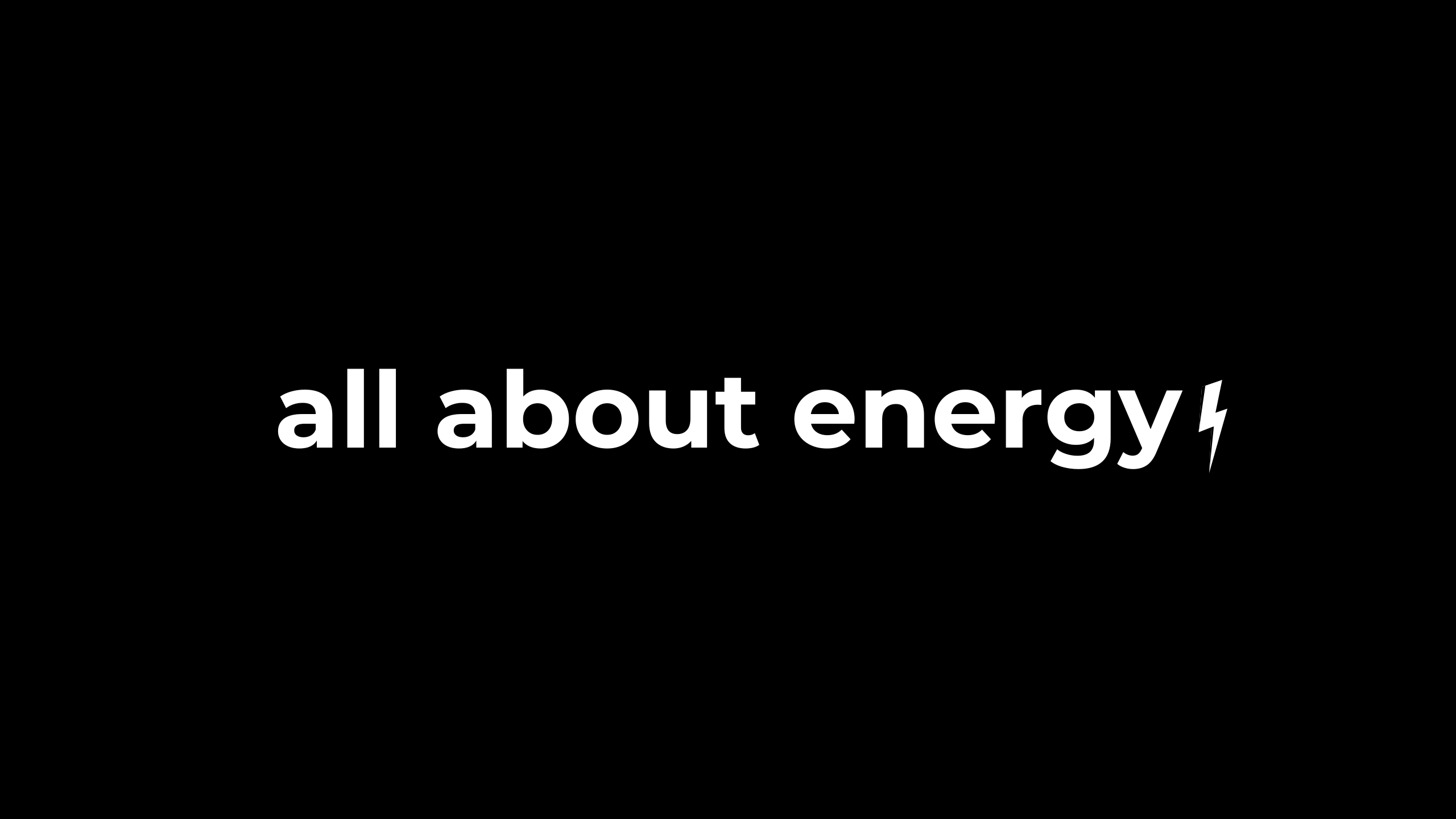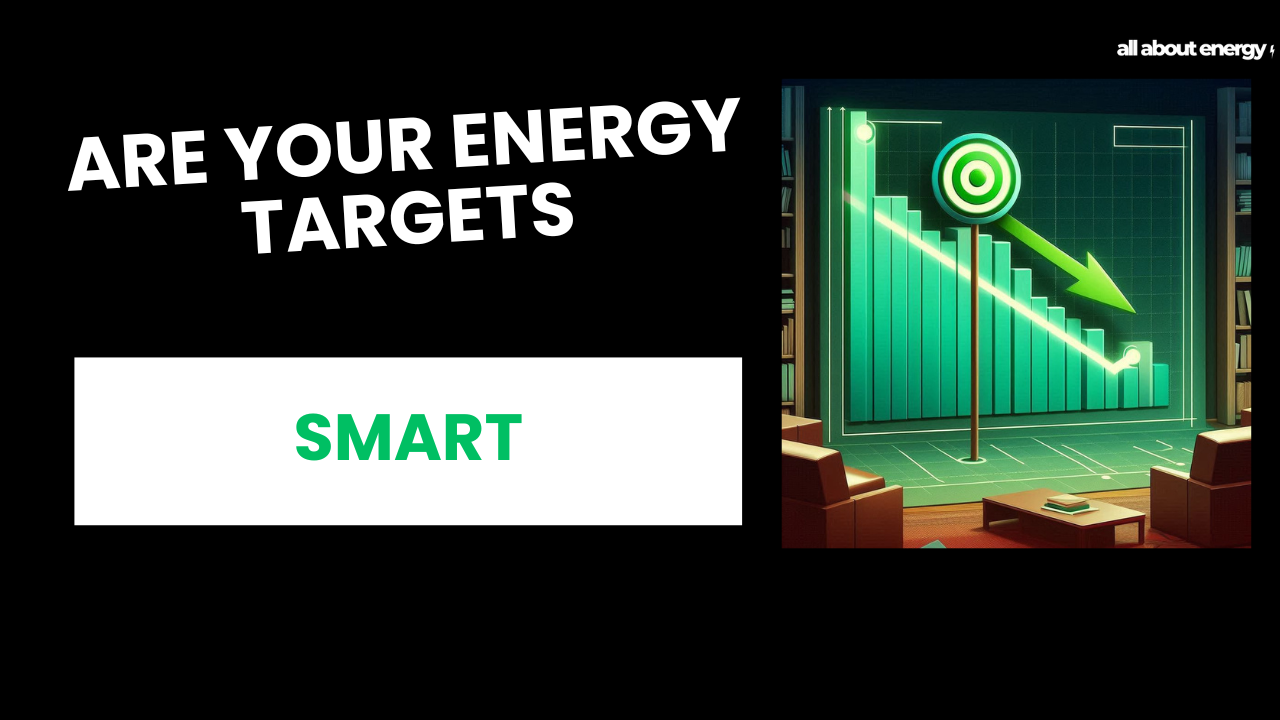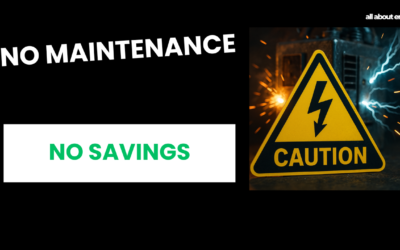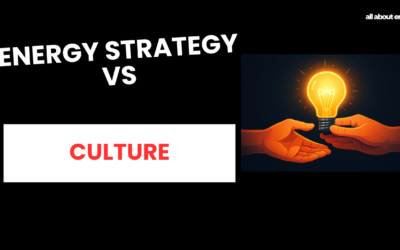How to Set Energy Targets That Actually Work
Written by Joe Wright
When it comes to energy management, setting targets is essential. Done right, they keep your team focused, stakeholders engaged, and your business on track to meet cost reduction, compliance, or net zero goals. But let’s be honest, vague ambitions like “be more efficient” or “cut energy use” don’t do much.
They’re not goals, they’re just ideas.
So how do you make sure your energy targets actually lead to action?
Make Them SMART – or Don’t Bother
You’ve likely heard of SMART targets before, but in the world of energy management, this isn’t just corporate jargon. It’s the difference between progress and wishful thinking.
Let’s break it down:
- Specific – Instead of saying “reduce energy”, how about “cut electricity use from office lighting by 60% within 12 months”?
- Measurable – Make sure you have a method to measure progress against the target
- Achievable – Ambition is good, but setting a goal to halve energy use with no plan or budget won’t get you far, and it could damage credibility.
- Relevant – The target needs to align with your business objectives, compliance obligations, or sustainability goals.
- Timebound – Deadlines drive accountability. Without them, progress stalls.
Start with a Baseline
Before you set any targets, you need a baseline This is your reference point and is typically a 12 month period that helps you understand your current energy consumption.
Establishing this baseline allows you to:
- Account for seasonal variations
- Identify peak demand periods
- Uncover inefficiencies or abnormal usage patterns
From here, targets become much more meaningful. You might identify opportunities directly from your analysis or go one step further with an energy audit to uncover deeper savings potential.
Get Specific With Your Data
Once you know what you want to improve, make sure you have a way to track it. That means having reliable data flowing in consistently. Ask yourself:
- Do we have smart meters or sub metering?
- Are we using energy monitoring software or regression analysis tools?
- Can we track usage monthly (or better)?
Real time or frequent tracking helps you spot issues early and course correct as needed. Guesswork won’t cut it, especially if you need to report back to senior leadership or prove compliance.
Be Realistic – But Don’t Underestimate Small Wins
Yes, big numbers look impressive, but they’re only valuable if they’re achievable. Cutting energy use by 50% sounds great until you realise you don’t have the budget, plan, or resources to make it happen.
Instead, take stock of:
- What resources and budget you have available
- Past performance (have you already tackled the low hanging fruit?)
- What operational changes are realistic without major disruption
Even a 5% reduction can result in significant savings, especially if energy prices are rising.
Align With the Bigger Picture
A target that doesn’t connect with your wider goals is not helpful.
Let’s say you’re an ESOS participant. You’ve likely already reviewed your consumption, identified savings opportunities, and built an implementation plan. If so, your next step is clear: track results and adjust course as needed.
Planning to electrify your fleet? Great, but remember, your electricity use will go up. In that case, focus on energy intensity (e.g. energy used per unit of output), not just total consumption.
This makes sure your targets stay relevant even as your operations evolve.
Set a Deadline. Then Stick to It.
Without a clear timeframe, even the best plans can drift. Time bound goals focus attention, drive accountability, and make progress trackable.
A good target is one people in your organisation can act on. Not just management but facilities teams, finance, operations, and everyone in between.
Final Thought: Are Your Targets Working for You?
Take a moment to reflect on your current energy targets:
- Are they SMART?
- Can you measure progress reliably?
- Do they align with your strategic objectives?
If the answer is anything less than a confident yes, it might be time for a rethink.
Need help setting, measuring, or reviewing your targets? Drop me a message. I’d happy to help you get set up to meet (or even exceed) them.
Are you looking to improve your organisations energy management practices?
Take our Energy Management Scorecard quiz to assess your current strategies and identify areas for improvement. Click below for the free assessment

You May Also Like…
Compliance Simplified
If you’re part of any of the mandatory compliance scheme like SECR, ESOS, or the many others out there, then you...
Why maintenance matters for energy management
When you think about improving your energy management, where does your mind go first? Upgrades? New systems? Cutting...
Creating A Culture Of Energy Efficiency
If your business is subject to compliance schemes like ESOS or SECR, you’re not alone. A lot of the companies I work...




